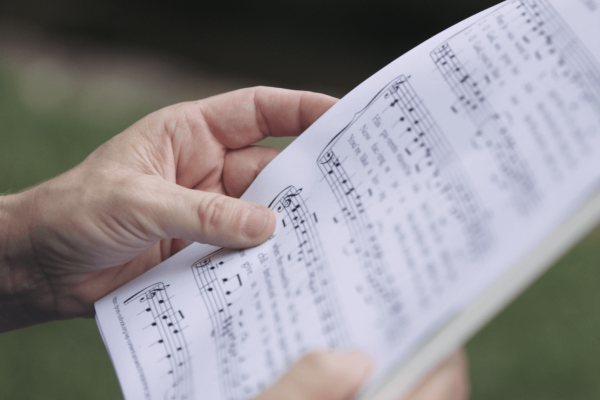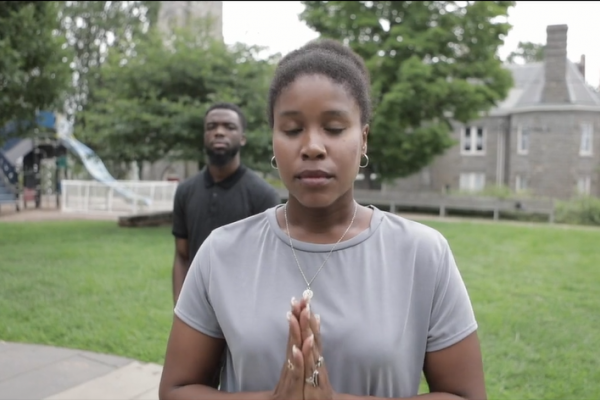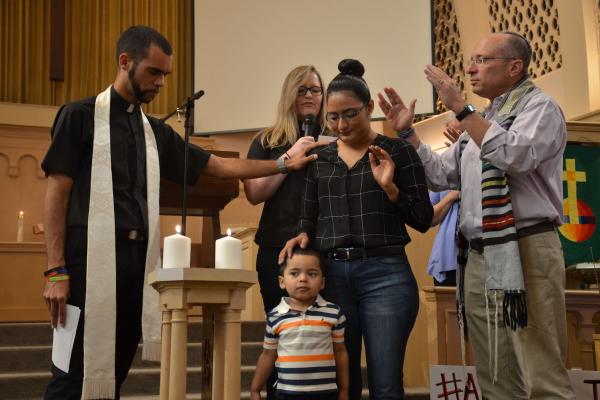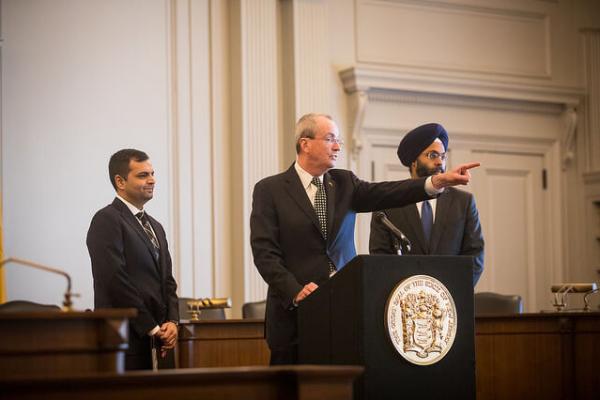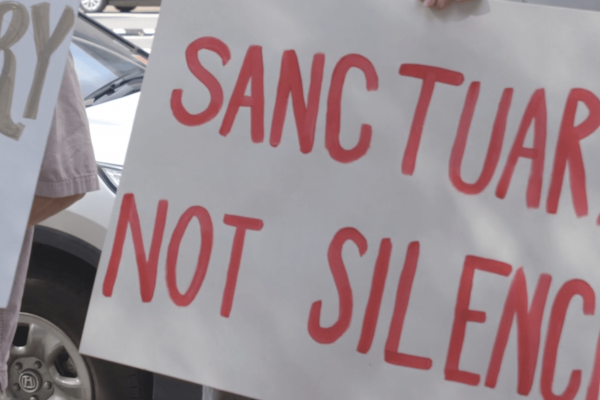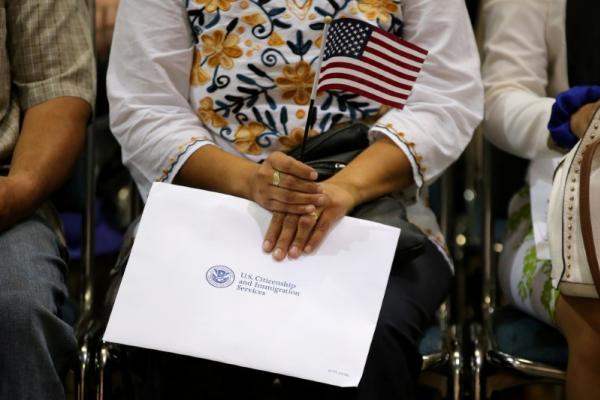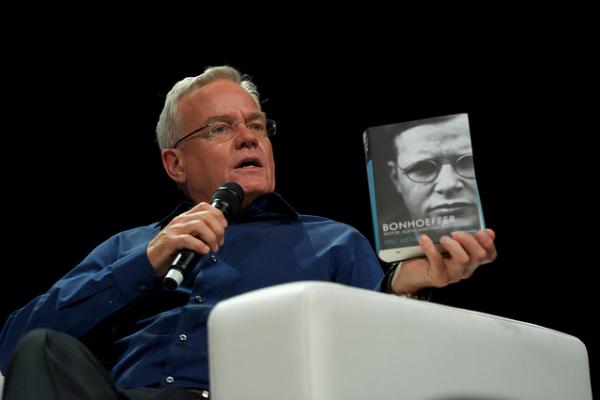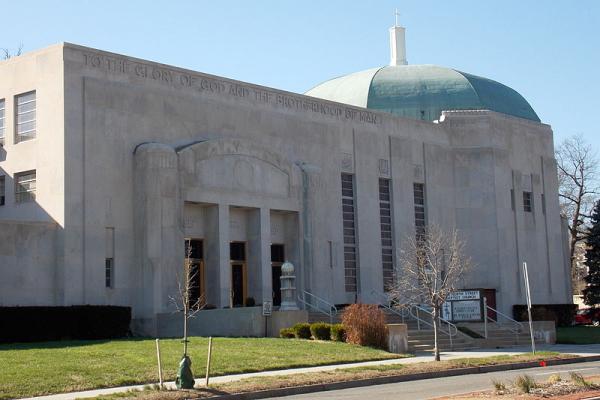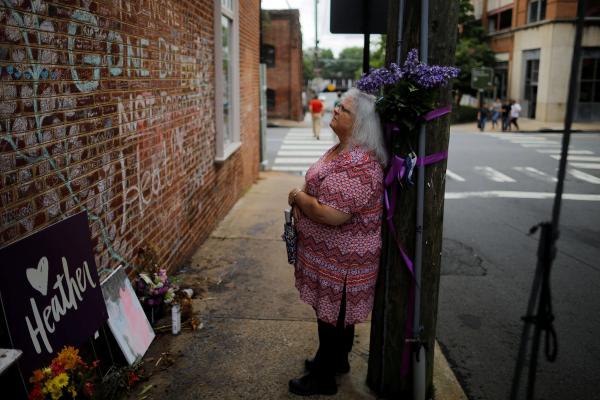Carolyn Winfrey Gillette has been writing hymns to bring modern issues into church pews for over 20 years.
On Aug. 12, 2017, I woke up keenly aware that I might die. I reflected on this reality during my drive to Charlottesville, Va., with plans to stand up for love and peace against white supremacy. I left Charlottesville physically unharmed, but scarred for life. I was scarred by the fact that Heather Heyer had been killed, that people, including friends, were injured in the terrorist attack, that my life had been blatantly threatened numerous times with people who chanted racial epithets and glared at me with their rifles, and that I had personally witnessed such intense vitriol towards my very existence. I drove away convinced that I would never return.
1. Charlottesville, One Year Later
Activists, faith leaders, and Charlottesville residents on the ongoing trauma and continued resistance against white nationalists.
2. ICE Crashed a Van Full of Separated Mothers, Then Denied It Ever Happened
The vehicle was towed and another picked up the women, who were on their way to be reunited with their children. An ICE spokesperson denied the crash happened, twice. Three weeks later, the admitted it, but called the incident a “fender bender.”
When Velasquez came to the border, she was taken to a detention center in Texas where she was held for a month and a half before making her way to Colorado. She met her husband in Colorado and the couple have three children who are American citizens. She lost a request for asylum in 2016 and was given a year-long stay of deportation in the U.S. Immigration officials indicated that they would not renew her stay of deportation any longer. So instead of going to her Aug. 9, 2017 check in with ICE, Velasquez and her family went to Park Hill and Temple Micah
The racist attacks spiked again after 9/11, particularly because Americans did not know about the Sikh religion and conflated the unique Sikh appearance with popular stereotypes of what terrorists look like.
Multiple advocacy groups in Washington, D.C., are calling out the mayor for complying with ICE. The groups delivered an open letter calling on her to seek the release of all D.C. residents detained by ICE and to hold a public meeting to seek next steps on making D.C. a "true sanctuary city."
While the INS’s mission was primarily to maintain control of the border and monitor immigration, the CBP’s mission aims to “safeguard America's borders thereby protecting the public from dangerous people”. The shift in mission from INS to CBP reflects an emphasis on anti-terrorism rather than immigration management.
The mass resignation comes in the wake of an admitted mishandling of sexual harassment allegations made against the church’s founder and former pastor, Rev. Bill Hybels.
“This is a great time for two churches that have been impacted by racial division to come together through the symbols of prayer, communion, focus on love and justice rather than racial division and hatred,” Roberts said.
Over the past year, activists and faith groups have worked to find a way forward, while reflecting on the long history that led to that tragic day.
